Former Iranian MP Warns Of Potential US-Iran War
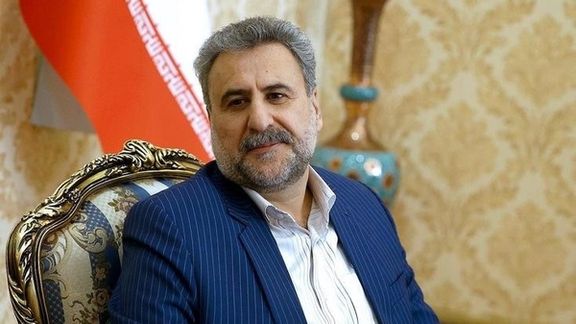
A former Iranian lawmaker has warned that "never before have the conditions for a war between Iran and the United States been as ripe as they are today".

A former Iranian lawmaker has warned that "never before have the conditions for a war between Iran and the United States been as ripe as they are today".
Heshmatollah Falahatpisheh, known for his expertise in nuclear-related matters, made the claims amid an escalating conflict between Iran-backed Hamas and Israel.
The US has mobilized war ships and troops and vowed to do all it can to stand by its ally Israel in the face of a war declared by Hamas -- designated by the UK, US and EU — on October 7.
The former head of the Iranian Parliament's Foreign Policy and National Security Committee warned that such a war would not serve the interests of either nation. Instead, he proposed that both sides should engage in dialogue, suggesting that a 'red table' in Muscat, Oman, could provide a suitable setting for diplomatic negotiations.
Oman has a history of mediating between Western countries and the Islamic Republic. The country has successfully helped facilitate the release of several foreign citizens and dual nationals held hostage by Iran in the past.
Experts believe the key to preventing further regional conflict lies in how the US responds to recent attacks against its forces in the region, 13 attacks on US troops in Syria in just one week, and whether it holds Iran accountable for the actions of its proxies.
However, the central question posed is whether the US threat to intervene in the Hamas war on Israel and if its deterrence strategy are viewed as credible by Iran and its proxies. Hezbollah on Israel's northern border have continued to step up military attacks while the Houthis in Yemen have begun to send missiles towards Israel, intercepted by Saudi Arabia and the US.

American forces in Iraq and Syria have come under attack on at least 13 occasions over the past week, the Pentagon has confirmed, by militant groups armed by Iran.
In a statement Tuesday, Pentagon's press secretary Brig. Gen. Pat Ryder said the incidents occurred between October 17 and October 24 and involved a combination of one-way attack drones and rockets.
In just one day (October 18), according to US Central Command, 20 American servicemen were injured in a drone attack on Al-Tanf military base in Syria and 4 more in a another drone attack on Al-Asad Airbase in Iraq.
The Department of Defense has so far not attributed these attacks to Iran, but officials have stated that there are "Iranian fingerprints all over it".
It is an open secret that the Islamic Republic Guards Corps (IRGC) plays a prominent role in both Iraq and Syria, funding and equipping various proxies. Iranian officials regularly boast about the IRGC’s ‘reach’ in the region.
The IRGC’s Quds force, responsible for overseas operations, has a history of proxy war with American forces in the Middle East. This latest round has arisen in the wake of Israel’s bombardment of Gaza, which began October 7 when Hamas militants launched a terror raid into southern Israel.
The Pentagon has toughened its tone against the Iranian regime in the last few days. Brig. Gen. Ryder said on Monday that the US would hold Iran ultimately responsible for the attacks in Iraq and Syria.
However, the Biden administration still seems to be reluctant to retaliate, fearing to get itself bogged down in a prolonged and costly regional war that would further destabilize the Middle East.
And this has enraged more than a few lawmakers in Washington.
“Obama and Biden both thought they could appease Iran with billions of dollars. They were wrong,” said Senator Ron Johnson to Fox News Tuesday. “We need to recognize Iran for the malign force it is in the world and stop handing them billions.”
Senator Marsha Blackburn seconded this sentiment. “Biden’s non-response will only incentivize Iran to continue attacking our troops,” she posted on her X account Tuesday night.
Responding to the growing threats against US forces in the region, President Joe Biden ordered two aircraft carrier strike groups and anti-missile defense systems to be deployed to the region. Defense Secretary Lloyd Austin has also issued prepare-to-deploy orders for a number of forces to respond to any aggressions. US had also sent additional naval forces to the Persian Gulf in July to deter Iran from harassing commercial shipping.
“We will always maintain the inherent right of self-defense,” Brig. Gen. Ryder said, “and if there is a response, should we choose to have one, we would do that at a time and place of our choosing.”
The US government is under increasing Congressional pressure to respond to the targeting of its forces in Iraq and Syria. It’s not clear if the American public agrees. It probably will, however, if the attacks on US forces were to continue and especially if American lives were to be lost.
“We need to be striking back,” said Senator Chris Coons to Fox News Tuesday evening, “and we need to be prepared for the very real prospect that this will get harder before it gets easier.”
Senator Coons is a close ally of President Biden. He was shortlisted for Secretary of State alongside Blinken.
The Biden administration has so far avoided military engagement with the IRGC and its proxies in the region. But things could change if Israel goes ahead with its planned ground invasion of Gaza and draws in other actors like Hezbollah to the war scene.
Nearly 6,000 Palestinian have died in Israel's air campaign in Gaza since the October 7 terrorist raid, which killed 1,400 Israelis, mostly civilians.
International calls for unimpeded aid to Palestinians in Gaza intensified Tuesday. The United States and Canada joined almost every other country in the United Nations to appeal for a “humanitarian pause” to get aid to civilians in Gaza.
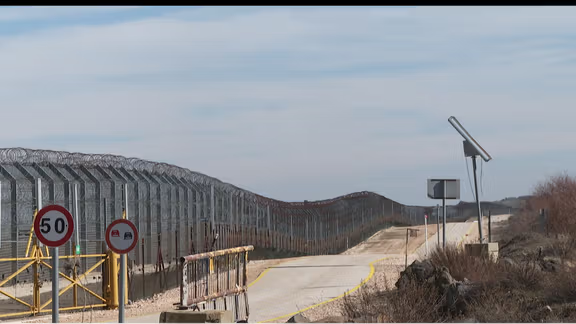
Israel's military said its jets struck Syrian army infrastructure and mortar launchers early on Wednesday as a response to rocket launches from Syria toward Israel.
The military said it had identified two rocket launches from Syria that had landed in open areas late on Tuesday, and that it had responded with artillery fire at the sources of the launches.
In a further response, the military said its fighter jets "struck military infrastructure and mortar launchers belonging to the Syrian Army".
The military did not provide further details. It did not accuse Syria's army of firing the two rockets, which set off air raid sirens in the Israeli-occupied Golan Heights on Tuesday.
Israel has twice attacked the international airports in Syria's capital Damascus and its second largest city Aleppo since the October 7 Hamas terror raid into southern Israel. These attacks are believed to be aimed at preventing Iranian military aid from reaching Syria and ultimately the Lebanese Hezbollah.
Israel has been regularly attacking Iranian and Hezbollah targets in Syria since 2017 to prevent Iranian entrenchment and weapons transfers to the Lebanese militant group.
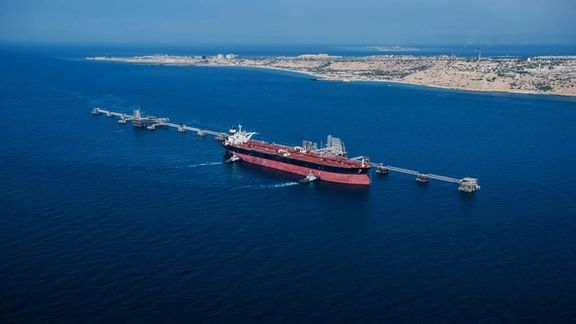
Despite a recent surge in oil exports, Iran is grappling with a large budget deficit partly due to inadequate oil income, raising questions about its real earnings.
Davoud Manzour, the head of Planning and Budget Organization (PBO), revealed on October 22 that the 7-month budget has only been realized by 70%, largely due to the unrealistic oil income estimates. While specific figures were not mentioned, Manzour cited discrepancies in both the projected oil prices and export volumes compared to the budget estimates.
As per this year’s government budget, Iran needs to export 1.5 million barrels per day (mb/d) of crude oil and gas condensate at an average price of $85 per barrel to balance its budget, which heavily depends on oil revenues. The government’s budget this year totals 22,630 trillion rial (approximately $45 billion at the free-market USD rate, with the government's share of total oil export revenues standing at 6,200 trillion rials ($12.5 billion), representing 42.5%.
Earlier, the Planning and Budget Organization had reported that only 42 percent of the expected oil revenues were realized from March 21-July 20, a figure that increased to 50 percent in August following higher oil exports. However, the realization of only 70 percent of the government budget over seven months implies a budget deficit of 3,960 trillion rials during that period. If this trend persists, it could culminate in a budget deficit of 6,788 trillion rials ($13.5 billion), marking the highest budget deficit in Iran's history.
The reasons for lower oil revenues
A notable point is that Manzour gave a much lower daily oil export figure than what has been mentioned by Reuters and others since August that claimed 1.85 million barrels per day. At this point the reason for the discrepancy is hard to pinpoint, but Iran’s revenue problems point to both lower volumes of exports and lower revenues.
Iran is delivering oil to Chinese independent and small refineries, called teapots, with 3-month delays in payments. Therefore, Iran’s March-September oil budget realization should be calculated based on January-July 2023 export data.
OPEC statistics indicate that during this period, the average Iranian oil price was $81/barrel, or $4 less than the estimate in the budget bill.
Though Iran’s oil exports soared to 1.5 mb/d in the summer, during January-July 2023, its average oil shipments were 1.2 mb/d, according to Kpler, commodity intelligence company.
On the other hand, about 6.6% or 80,000 b/day of Iranian exported oil was delivered to Syria in this period, a country that receives reportedly free oil from the Islamic Revolutionary Guard Corps, as Iran’s financial assistance to the Bashar Asad regime and regional proxies such as Hezbollah. Iran also delivered 22,000 b/d of gas condensate (ultralight oil) to Venezuela in this period to enable Caracas to boost its crude exports. The Venezuelan oil is too heavy for easy shipping, but when mixed with light Iranian oil, it becomes easier to ship.
Therefore, in total Iran exported only a little more than 1.1 mb/d to China in January-July 2023, about 400,000 b/d less than the budget bill estimate.
The costs for bypassing US sanctions
According to the Reuters and Bloomberg’s reports, Chinese teapots purchase Iranian oil with $10-$12 per barrel of discount.
On the other hand, international tanker tracking companies say a huge amount of Iranian oil is sold to China by middlemen and brokers, by ship-to-ship transfers in and the cargoes mostly are rebranded as Malaysian oil. The transfers take place in international waters, and apparently Malaysia does not interfere.
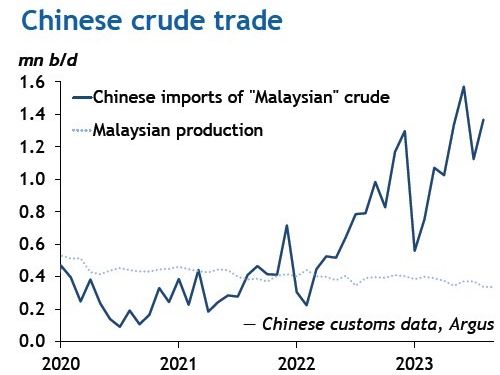
Therefore, Iran is not only giving a discount to end buyers, but also offers an undetermined amount of its profits to middlemen and tanker companies that are engaged in the diversionary oil export operations. The actual amount that Iran eventually earns could be closer to $40 per barrel than around $70.
On the other hand, Iran barters a part of its oil with Chinese goods.
The China Custom Administration’s statistics show a huge unbalanced non-oil trade with Iran. China has exported $7.493 billion goods to Iran in the first eight months of 2023, while its non-oil imports from Iran was only $3.287 billion.
The barter stems partly from US sanctions on Iran’s oil exports and the banking sector. Chinese buyers cannot easily transfer foreign currencies to Iran. The money needs to be laundered in different ways and in various countries in Asia and in the Persian Gulf.
While the Biden administration has not rigorously enforced US sanctions, thus permitting increased Iranian exports, there's a possibility that some of the optimistic estimates regarding Iran's oil revenues may not be entirely accurate. However, if the sanctions were enforced and Tehran could only sell a limited amount, such as the 500,000 barrels per day seen in 2019 and early 2020, the financial situation in the Islamic Republic would be considerably more dire today.
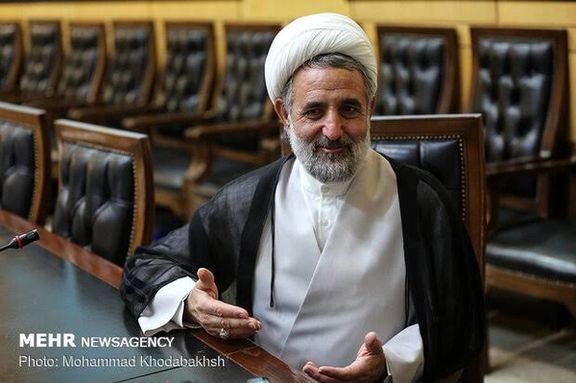
A parliamentary delegation from Iran left the opening ceremony of the Inter-Parliamentary Union after an anti-Hamas speech made by the union president.
The delegation, led by Mojtaba Zonnour, the deputy speaker of the parliament, attended the 147th session of the Inter-Parliamentary Union for the first time, with participants from over 120 countries.
Zonnour, a hardliner, previously served as the Supreme Leader's Deputy Representative to the Islamic Revolutionary Guard Corps (IRGC) and chaired the Nuclear Subcommittee of the National Security and Foreign Policy Committee in the Islamic Consultative Assembly until 2019.
At the beginning of the session, Duarte Pacheco, the President of the Inter-Parliamentary Union, delivered a speech in which he advocated the right of Israelis to defend themselves in recent events and referred to Palestinian groups as "terrorists." Following his statements, the Iranian parliamentary delegation left the opening ceremony in protest.
Designated as a State Sponsor of Terrorism in 1984, Iran continues its support for terrorist-related activities, including support for Hezbollah, Palestinian terror-designated groups in Gaza, and various militant groups in Iraq, Syria, Bahrain, and elsewhere throughout the Middle East.
Israel has vowed to wipe out the Hamas Islamist group that rules Gaza, after its gunmen burst through the barrier fence surrounding the enclave on October 7 and rampaged through Israeli towns and kibbutzes, killing 1,400 people.
Israel has since pounded Gaza from the air, imposed a siege and is preparing for a ground offensive. Palestinian authorities say around 5,000 people have been killed in the enclave. The UN says more than a million have been made homeless.

Four decades of propaganda by the Islamic Republic to garner support for its anti-Israeli campaign seems to have backfired as many Iranians want defeat for Hamas.
This heightened interest in the war's developments is driven by growing concerns about the potential for an escalation that could entangle Iran in a deadly conflict with Israel, and potentially even involve the United States.
The potential for escalation was revealed in remarks by US Secretary of State Antony Blinken who told the UN Security Council on Tuesday: "The United States does not seek conflict with Iran. We do not want this war to widen. But if Iran or its proxies attack US personnel anywhere, make no mistake: we will defend our people, we will defend our security -- swiftly and decisively."
Iranian lawmakers and military commanders have issued several threats to reassure the nation that they are in a strong position. However, these counter-threats have only served to heighten concerns about the uncertain future, especially if one of these threats were to materialize into military or terrorist actions.
Both in the actual world and on social media, Iranians have been showing strong opposition to the government's pro-Hamas and anti-Israeli narratives as well as unusually vocal support for Israel in the Gaza war. “Neither Gaza, nor Lebanon, I will sacrifice my life for Iran,” has been a popular slogan for protesters, students and even football fans.
However, pro-regime filmmaker Abolqasem Talebi even claimed this week that the slogan was created by Israel, ignoring the fact that it was first chanted several years before the Gaza war.
An article on the moderate news website Rouydad24 on Monday tried to discourage Iranians from chanting the slogan which is the lingering legacy of nationwide anti-government protests since 2018.
The article suggested that this "nationalistic" slogan had the potential to pave the way for "fascism." A brief examination of the website on Monday showed that it was part of a series of articles critical of patriotic and nationalist sentiments, which share significant similarities in the Persian language.
The website's concern about the slogan and its preaching that Iranians "must not chant any slogan they think will be helpful in their struggle against the government" has been particularly raised after spectators at Iranian stadiums chanted the slogan when confronted with government propaganda about the Palestinian issue, especially when it was intended to express support for Hamas.
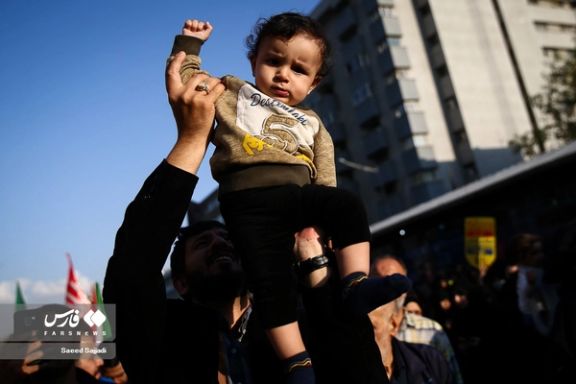
As the war in Gaza began, Iranians noticed brand new cars belonging to Palestinians who were leaving Gaza City in response to Israel's warning. Iranians shared images of these vehicles on social media, serving as a reminder that the government had been portraying Palestinians as impoverished for decades, all the while they were driving luxurious cars. This highlighted the stark contrast with Iranians who were struggling with high prices for poorly manufactured Iranian and Chinese vehicles.
In numerous videos from Gaza, Iranians also observed that Palestinians were living in homes and new apartment buildings that were much better than those in Iran.
Then came the news on social media about Hamas fighter being paid between $400 to $600 per month by the Iranian government, while current wages in Iran barely reach $200. The news may or may not be true, but given the current circumstances and the lack of fair and transparent information in Iranian media, people tend to believe even rumors.
The last blow came, once again on social media, and on satellite television, as footages showed Hamas Leader Ziad Nakhaleh shunning Shiism and telling Palestinians: "You can be a Shiite, but in this case you need to leave Hamas."
In recent weeks, Iranian stadiums have been venues for various anti-Hamas and anti-Palestinian incidents, as the government and its media often conflate Hamas with all of Palestine. Spectators at these events initially chanted disrespectful slogans when Palestinian flags were displayed in the stadium. In another instance, they created a disturbance by shouting and whistling when the loudspeakers called for a minute of silence to honor Palestinian "martyrs."
Meanwhile, numerous instances of Iranians expressing support for Israel have emerged on social media. Podcaster Sadegh Rohani pointed out in a tweet: "Israel has never been as popular in Iran as it is now. Even if there were Israel supporters before, they were not as outspoken as they are today."